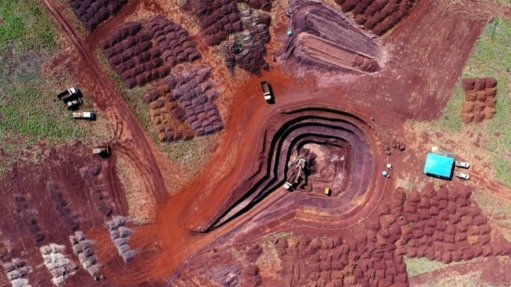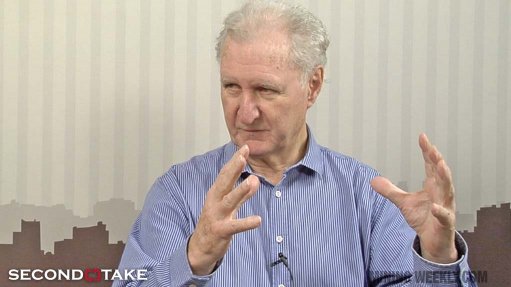Mining, taxation – and honey
The Mozambique government believes that the changes to the country’s mining taxation code which were recently approved by the Assembly of the Republic (Parliament) will significantly increase the revenues of the State.
The estimation is that the amount of the increase will be in the region of 900-billion meticais, or some $30-billion. This increase will be the main result of the levying of tax on production, Finance Minister Manuel Chang has affirmed.
The legislation which has been amended is Law No 11/2007 (of June 27, 2007), which is the law governing mining taxation. The reason the law was amended, Chang stated in Maputo, was to bring the fiscal regime into line with international practices regarding the mining sector. It also created a single legal instrument for tax matters regarding the mining industry, thereby making it easier to consult and interpret the legislation.
The newspaper Notícias has also reported that key committees of the Assembly of the Republic have already been considering the effects of the amended legislation and what the increased revenues should be used for. Thus, the Committee on Constitutional Affairs, Human Rights and Legality (also referred to as the First Committee) has highlighted certain aspects that will have to be considered to ensure that the legislation achieves its envisaged objectives. Among these are the need to ensure a secure transition to the new regime. This would be established until when the tax regime now applicable to the mining and hydrocarbons sectors would continue. Also, there is a need to ensure the compatibility of the new tax regime with tax stabilisation agreements signed with companies in these sectors before the Mines and Petroleum Law came into force.
The First Committee is also concerned about how much mining operations will be taxed. It does not want them to be excessively taxed, as mining operations in the country are subject to events beyond their control. “Excessive taxation can set up a [type of] tax authority which we believe will not be the will and purpose of government,” said the committee in a report.
In its turn, the Planning and Budget Committee (also known as the Second Committee) has been considering how the extra revenues should be spent. It has recommended that they be used to acquire physical assets, specifically productive infrastructure, such as roads, railways, ports, coastal shipping and electricity networks. The result would be the gradual increase of investment in such infrastructure, improving efficiency. The new revenues should not be turned into financial assets.
Meanwhile, in a small but significant sign of the impact that the development of major mining and oil and gas projects is having in Mozambique, the district of Sussundenga (in Manica province in the centre of the country) has ceased exporting honey to South Africa. “The honey has ceased to be exported to South Africa in order to meet the local market demand, from the [coal and hydrocarbons] mega projects and other national companies,” District Economic Activities Services Sussundenga director Castigo Bofana told the Lusa News Agency last week. “The local population is also showing more interest in consuming honey.”
Commercial production of honey by small-scale beekeepers was restarted in Sussundenga in 2011, as part of a government project supported with €150 000 from the African Development Bank. A total of 67 apiculture associations were set up in the provinces of Manica (40) and Sofala (27). The Sussundenga Apiculture Association produced 17 t of honey in 2012 and 54 t last year. Production is expected to be even higher this year. “We have set up a honey processing plant in Sussundenga, and with the increase of production we will see if there is a possibility of restarting exports . . . [there are] constant requests from South Africa,” reported Bofana.
Comments
Press Office
Announcements
What's On
Subscribe to improve your user experience...
Option 1 (equivalent of R125 a month):
Receive a weekly copy of Creamer Media's Engineering News & Mining Weekly magazine
(print copy for those in South Africa and e-magazine for those outside of South Africa)
Receive daily email newsletters
Access to full search results
Access archive of magazine back copies
Access to Projects in Progress
Access to ONE Research Report of your choice in PDF format
Option 2 (equivalent of R375 a month):
All benefits from Option 1
PLUS
Access to Creamer Media's Research Channel Africa for ALL Research Reports, in PDF format, on various industrial and mining sectors
including Electricity; Water; Energy Transition; Hydrogen; Roads, Rail and Ports; Coal; Gold; Platinum; Battery Metals; etc.
Already a subscriber?
Forgotten your password?
Receive weekly copy of Creamer Media's Engineering News & Mining Weekly magazine (print copy for those in South Africa and e-magazine for those outside of South Africa)
➕
Recieve daily email newsletters
➕
Access to full search results
➕
Access archive of magazine back copies
➕
Access to Projects in Progress
➕
Access to ONE Research Report of your choice in PDF format
RESEARCH CHANNEL AFRICA
R4500 (equivalent of R375 a month)
SUBSCRIBEAll benefits from Option 1
➕
Access to Creamer Media's Research Channel Africa for ALL Research Reports on various industrial and mining sectors, in PDF format, including on:
Electricity
➕
Water
➕
Energy Transition
➕
Hydrogen
➕
Roads, Rail and Ports
➕
Coal
➕
Gold
➕
Platinum
➕
Battery Metals
➕
etc.
Receive all benefits from Option 1 or Option 2 delivered to numerous people at your company
➕
Multiple User names and Passwords for simultaneous log-ins
➕
Intranet integration access to all in your organisation


















